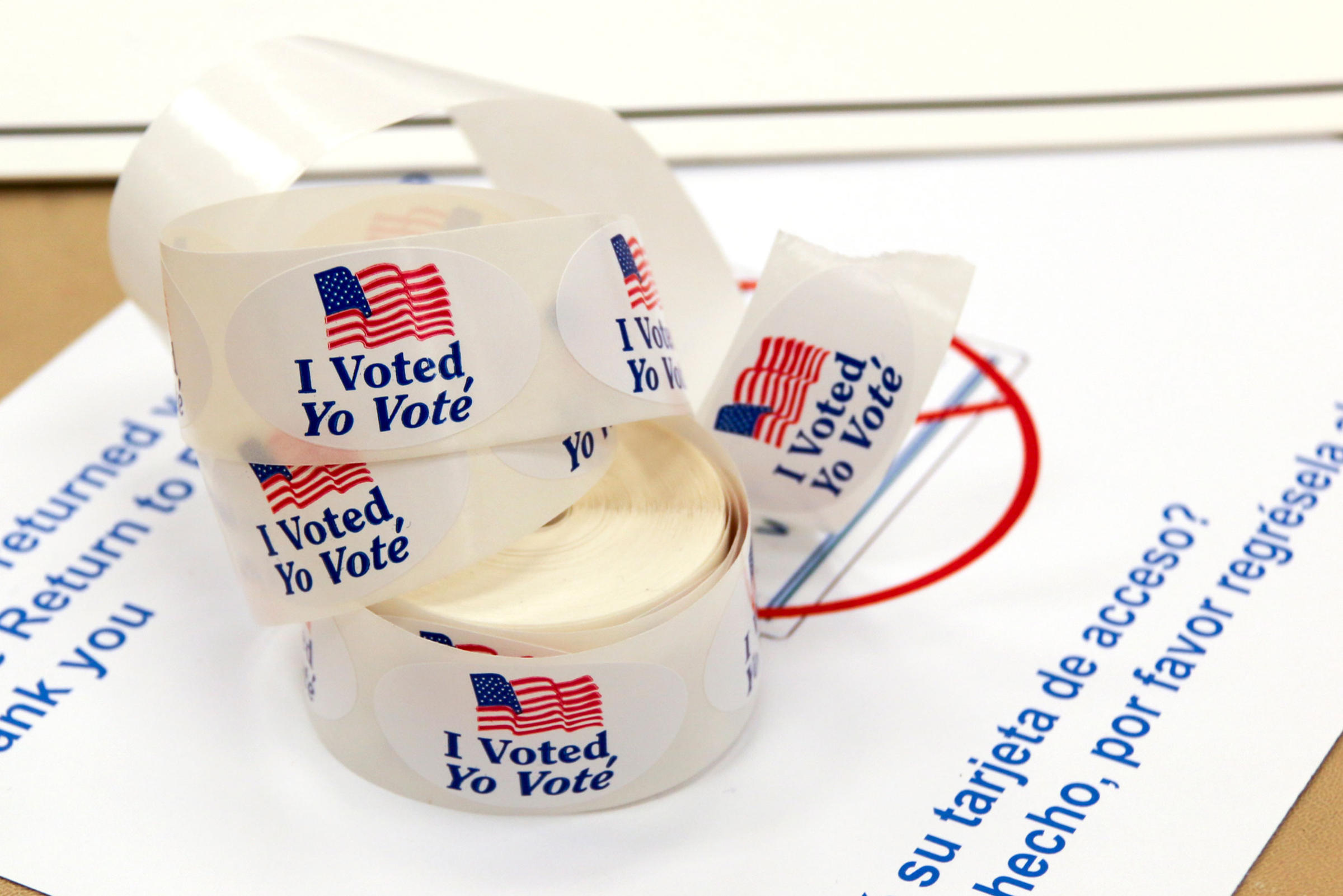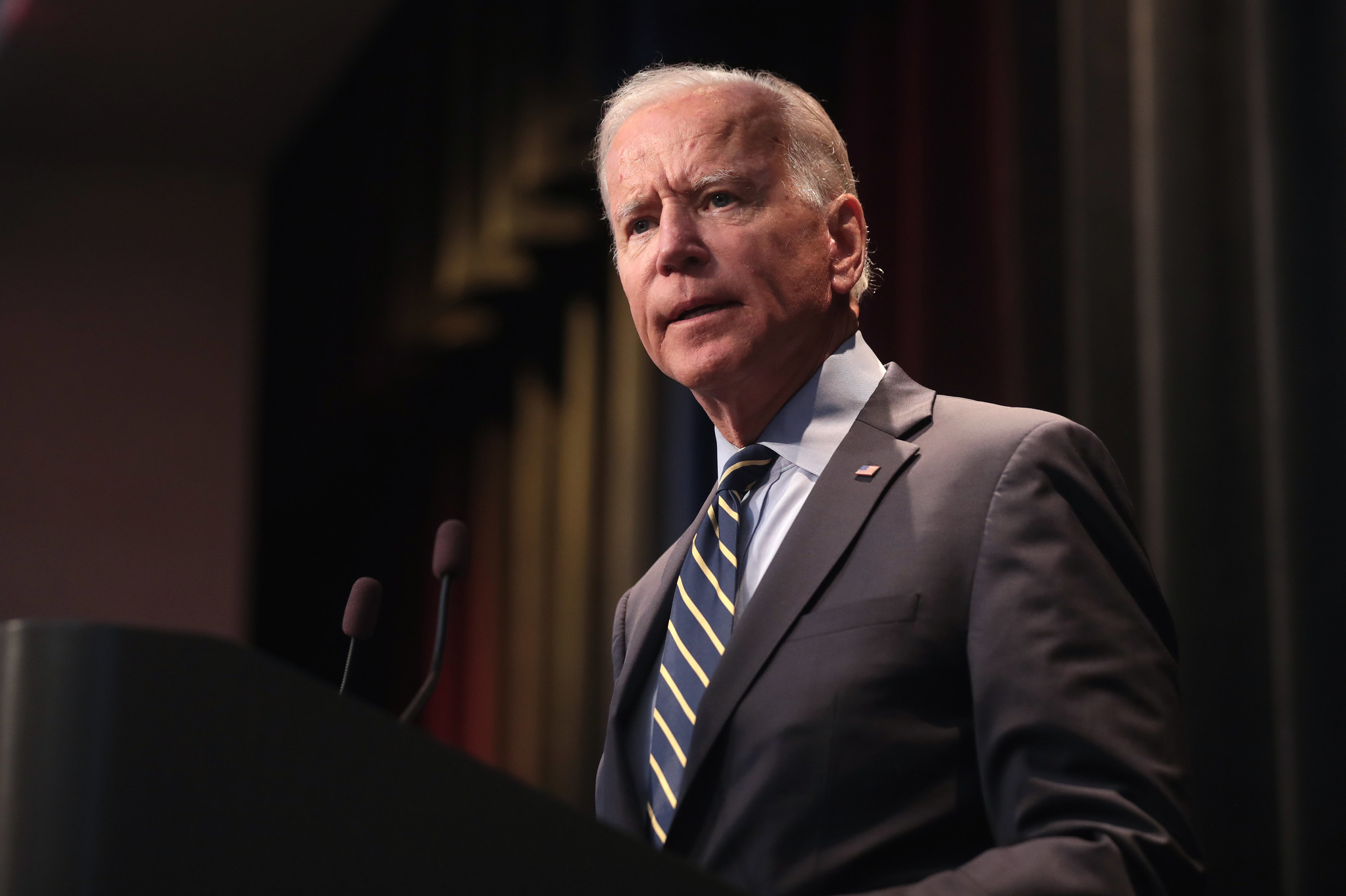As Part of Electoral Count Act Reform, Liberals Should Learn to Love Bush v. Gore
Democrats in Congress should not let their overlooking of existing federal-court authority, or their displeasure with the result in Bush v. Gore, impede the current effort at bipartisan ECA reform.

Published by The Lawfare Institute
in Cooperation With

The big fear from many liberals is that revising the Electoral Count Act (ECA), to prevent Congress from negating a Democratic presidential candidate’s valid victory in the way that Sen. Josh Hawley and Rep. Mo Brooks wanted to do last time, would do nothing to stop malevolent state actors—a governor or state legislature—from doing the same. Even worse, some fear that a revised ECA that requires Congress to accept whatever electoral votes a state sent would lock in the subversion of valid votes perpetrated in the state.
While motivated by the well-intended desire to protect democracy, this fear misunderstands the process by which the popular votes cast for president get translated into electoral votes, including the all-important role that the federal judiciary plays in ensuring that all popular votes be counted equally. Simply put, while all of us concerned for the future of democracy should worry about partisan state officials seeking to manipulate the counting of the state’s popular vote, we should calibrate our concern so that it is commensurate with the threat. In doing so, we must recognize that the federal judiciary, if it adheres to long-standing principles and precedents, will not permit any state official to proclaim an electoral outcome contrary to what a true count of the ballots would provide.
There are a lot of cases one could cite as evidence for this: Griffin v. Burns, a U.S. Court of Appeals for the First Circuit decision involving a 1977 municipal election in Rhode Island; Roe v. Alabama, a U.S. Court of Appeals for the Eleventh Circuit case concerning the 1994 statewide election for the chief justice seat on the Alabama Supreme Court; or Hunter v. Hamilton County Board of Elections, a U.S. Court of Appeals for the Sixth Circuit ruling about a 2010 local judicial election in Ohio.
But the most well-known case that stands for the same proposition is the one that settled the 2000 presidential election: Bush v. Gore. Democrats despise Bush v. Gore because they think it robbed former Vice President Al Gore of a victory he would have had. That’s incorrect but for present purposes beside the point. What’s important now about Bush v. Gore is not the Supreme Court’s controversial 5-4 decision to deny the possibility of a resumed recount on remand to the Florida Supreme Court but instead the majority’s proposition for which there was no registered dissent: “When the state legislature vests the right to vote for President in its people, the right to vote as the legislature has prescribed is fundamental; and one source of its fundamental nature lies in the equal weight accorded to each vote and the equal dignity owed to each voter.” This constitutional principle means that in 2024, or any future presidential election, as long as the state legislature continues to use a popular vote as its chosen means for appointing the state’s electors, the counting of the popular vote must treat all cast ballots equally. In the words of Bush v. Gore itself: “Having once granted the right to vote on equal terms, the State may not, by later arbitrary and disparate treatment, value one person’s vote over that of another.”
This fundamental constitutional principle applies to whomever state law designates as having power to participate in counting the state’s popular vote. For example, if Rep. Jody Hice, who has embraced Trump’s false claims that the 2020 election was stolen from him, replaces Brad Raffensperger as Georgia’s secretary of state, Hice cannot contravene the basic principle of Bush v. Gore in 2024. If Hice at Trump’s direction attempted to “find” 11,780 extra votes that did not exist, the U.S. Constitution as interpreted in Bush v. Gore (and many other cases) would constrain Hice from perpetrating this subversion of the actual tally of valid votes in the election.
The same point applies if former Sen. David Perdue replaces Brian Kemp as Georgia’s governor. Perdue is running on the platform of refusing to certify an election result unfavorable to Trump regardless of what the true tally of valid votes reveals. But suppose Perdue is governor in 2024 and he simply refuses to certify an honest count that shows the Democrats winning the state’s popular vote. The Democrats then could sue Perdue in federal court, citing Bush v. Gore and myriad other precedents. If the court abides by the rule of law (as is to be expected), the court would order Perdue to provide the certification that he refuses to perform. And if Perdue persists in this refusal, the court would hold him in contempt and provide whatever additional judicial decree is necessary to sustain the supremacy of federal constitutional law—as explicitly required by the Constitution itself.
The same point applies even if the state’s legislature attempts to give itself a role in the counting of ballots, as some legislatures in battleground states (like Arizona) have threatened. To be clear, it is an utterly horrible idea that partisan-dominated state legislatures might try to insert themselves in the vote-counting process: The history of disputed elections in the United States shows that the risk of violence increased considerably when state legislatures, compared to courts or administrative agencies, asserted this authority. But even if a state legislature were to adopt this misguided measure, Bush v. Gore would prevent the state legislature from manipulating the count of the popular vote contrary to what the valid ballots actually showed. Once the state legislature chooses a popular vote as the method of appointing the state’s electors, the U.S. Constitution requires that this popular vote be counted honestly in order to guarantee equal protection to all participating voters, and this requirement governs the counting of ballots even when the state legislature gives itself the authority under state law to conduct or review the count.
To be clear, there is a separate tack a state legislature might take in an attempt to subvert a state’s popular vote. Rather than claiming to recount the ballots to its liking, the legislature might endeavor to repudiate the count altogether and assert that it is simply exercising a residual authority to appoint the state’s electors directly rather than relying on a popular vote as the state’s method of appointment. But once a state legislature has chosen a popular vote as its method for appointing electors, and after that popular vote has been held on Election Day in November of the relevant year, the state legislature is constitutionally powerless to choose a different method of appointing its electors for that year’s presidential election.
How can we be sure that a state’s legislature lacks this power? Because the Constitution explicitly says so. Article II of the Constitution entrusts Congress with the power to determine the “time” for states to appoint their electors. Therefore, once state legislatures have chosen their manner of appointing electors, and once these electors have been appointed at the congressionally designated time, state legislatures no longer can choose a different method of appointing electors for that particular presidential election. Thus, the popular vote having been held to appoint a state’s electors—as previously directed by the state legislature itself—the legislature no longer can repudiate the popular vote as its chosen method of appointment and purport to claim an authority to appoint the electors directly itself.
A state legislature might try to claim that its previous choice to hold a popular vote has “failed” because of an impossibility to count the popular vote correctly and that therefore under 3 U.S.C. § 2 it is authorized to choose a new manner of appointing electors for the current election and accordingly it can choose direct legislative appointment of electors if it wishes. A fair reading of 3 U.S.C. § 2 would reject the idea that a state legislature can declare a “failed” popular vote just because the legislature does not like the outcome that counting the popular vote produces. But a well-revised Electoral Count Act would make this point abundantly clear. A revised ECA could establish that as long as procedures for counting ballots established by state law before those ballots were cast are capable of yielding a count of those votes, then the election has not “failed” and the state’s legislature lacks power to choose any alternative method for appointing electors in that year’s election.
There is a larger point at stake here. The key idea is that once state law specifies the rules and procedures for counting the popular vote in a presidential election, state law cannot change those rules and procedures after the ballots have been cast. This idea has roots in the Due Process Clause of the 14th Amendment (see, especially, Roe v. Alabama) as well as Article II itself. (The so-called independent state legislature doctrine has been much maligned on the left as an overreading of Article II in this respect, but if properly understood—and not taken too far—it actually reinforces that Article II serves as a valuable protection against alteration of election rules and procedures once the election is underway.) Liberals worried about the possibility of rogue state actors attempting to subvert the counting of ballots in the 2024 presidential election after those ballots have been cast should welcome the idea, already recognized in precedent, of the federal judiciary insisting that all state officials involved in counting these ballots must comply with applicable state law as specified in advance of casting those ballots.
It is possible that a well-crafted revision to the Electoral Count Act could include new statutory provisions clarifying the nature of federal-court litigation over the counting of a state’s popular vote in a presidential election. But there would be a plethora of tricky technical details for these statutory provisions to address. For example, Congress would need to consider whether the federal judicial involvement should be primarily appellate in nature, consisting of U.S. Supreme Court review of proceedings that started in state court (as in Bush v. Gore itself), or if it should instead consist of separate proceedings initiated in federal district court with the potential for further federal appellate review including in the Supreme Court (as occurred in some of the lawsuits filed in 2020 by the Trump campaign). There might be advantages to Congress attempting to regularize these litigation procedures through new federal statutory provisions included within a revised ECA.
But it also might be advantageous for Congress simply to let the federal judiciary handle these procedural issues itself pursuant to already existing precedents and general grants of jurisdiction. A review of litigation over election results during the past few decades, including litigation in presidential elections specifically, reveals a basic capacity of the federal courts to intervene when they determine that state vote-counting processes have gone awry in violation of fundamental federal constitutional guarantees. Recognizing this basic truth should provide sufficient assurance that the federal judiciary will not permit state officials to nullify an honest count of the state’s popular vote contrary to preexisting state law. Democrats in Congress should pursue bipartisan ECA reform based on this premise and, while they should pursue the possibility of new statutory provisions that confirm and clarify the power of federal courts to review a state’s counting of the popular vote for compliance with federal law, they should not make any Republican refusal to include these new provisions a dealbreaker. If bipartisan ECA reform ends up relying on existing federal-court precedents and procedures to protect the honest counting of a state’s popular vote, while at the same time making sure that Congress itself does not subvert that honest count, that would be very much worthwhile reform and far superior to the existing ECA.
To be sure, protecting the honest counting of the popular vote in a presidential election is far from the full panoply of electoral reform that ideally would be achieved. Safeguarding the counting of votes does nothing to protect the casting of them. But there already exist federal law provisions designed to guarantee the right to cast a ballot that is capable of being counted—including the essential provision of the 2002 Help America Vote Act that obligates states to give a provisional ballot to everyone who goes to the polls believing themselves to be eligible to vote. If there is a fear that eligible voters will be denied their fundamental right to cast a ballot in 2024—because of long lines at polling places, for example—then there should be a focused effort to bolster the Help America Vote Act’s existing provisional ballot guarantee so that no one is denied an opportunity to cast at least a provisional ballot because of excessively long lines at the polls (or otherwise).
A well-revised ECA by itself also would not protect against the risk of election subversion in congressional, rather than presidential, elections. With the midterms looming, Americans need to be concerned about the possibility of a seriously disputed election in one of the Senate races, with perhaps partisan control of the Senate hanging in the balance. But under the Constitution, the Senate itself is ultimately responsible for reviewing the honesty and accuracy of vote-counting in an election for a seat in the chamber. Provisions for handling a disputed Senate seat are treated separately from disputed presidential elections under the ECA—and must remain so.
Although ECA reform necessarily has a circumscribed scope, no one should minimize its significance. In the absence of ECA reform, there remains the serious threat that the kind of repudiation of a valid victory that Hawley and Brooks (among others) wished to perpetrate could be successful next time. Under the existing ECA, as long as members of Congress have enough votes on Jan. 6, 2025, they can nullify an electoral outcome they don’t like even if that outcome is what the voters of enough states for an Electoral College majority wanted. It is essential that a well-revised ECA make clear that members of Congress, as well as the vice president, lack this kind of electoral nullification power.
It is correct to be concerned that the attempt to nullify a valid popular-vote victory might occur in the states before the presidential election ever reaches Congress. But the remedy for potential state-based efforts at electoral nullification is the existing authority of federal courts under a series of constitutional precedents, including most especially Bush v. Gore. Democrats in Congress should not let their overlooking of this existing federal-court authority, or their instinctive displeasure with the result in Bush v. Gore specifically, impede the current effort at bipartisan ECA reform.
The need to constrain Congress itself from the temptation to veto unwanted electoral votes from the states is too great. The public—and Congress—can rely on the federal courts to protect from a subversion of a valid presidential election in the states. But only the self-restraint of Congress, in the form of a well-revised ECA, can protect against another attempt at electoral subversion in the special joint session of Congress where the winner of the next presidential term is officially declared.




